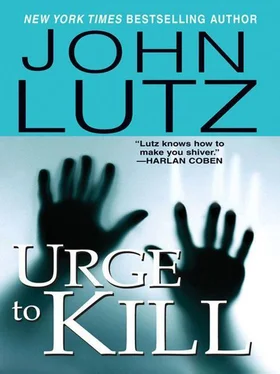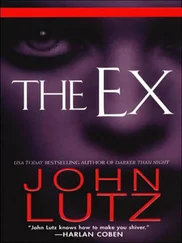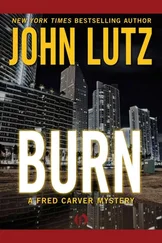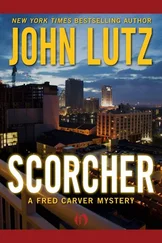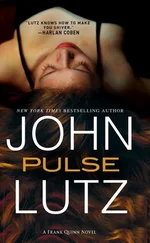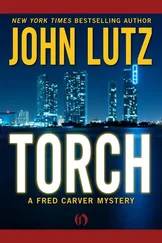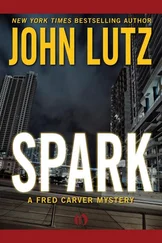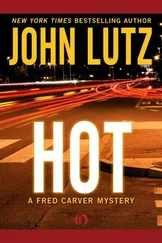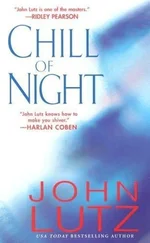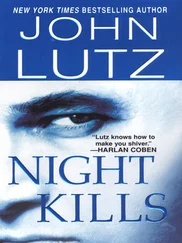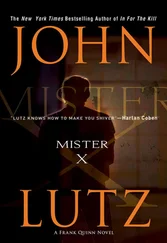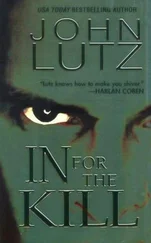John Lutz - Urge to Kill
Здесь есть возможность читать онлайн «John Lutz - Urge to Kill» весь текст электронной книги совершенно бесплатно (целиком полную версию без сокращений). В некоторых случаях можно слушать аудио, скачать через торрент в формате fb2 и присутствует краткое содержание. Жанр: Триллер, на английском языке. Описание произведения, (предисловие) а так же отзывы посетителей доступны на портале библиотеки ЛибКат.
- Название:Urge to Kill
- Автор:
- Жанр:
- Год:неизвестен
- ISBN:нет данных
- Рейтинг книги:3 / 5. Голосов: 1
-
Избранное:Добавить в избранное
- Отзывы:
-
Ваша оценка:
- 60
- 1
- 2
- 3
- 4
- 5
Urge to Kill: краткое содержание, описание и аннотация
Предлагаем к чтению аннотацию, описание, краткое содержание или предисловие (зависит от того, что написал сам автор книги «Urge to Kill»). Если вы не нашли необходимую информацию о книге — напишите в комментариях, мы постараемся отыскать её.
Urge to Kill — читать онлайн бесплатно полную книгу (весь текст) целиком
Ниже представлен текст книги, разбитый по страницам. Система сохранения места последней прочитанной страницы, позволяет с удобством читать онлайн бесплатно книгу «Urge to Kill», без необходимости каждый раз заново искать на чём Вы остановились. Поставьте закладку, и сможете в любой момент перейти на страницу, на которой закончили чтение.
Интервал:
Закладка:
“Mishkin said you gotta feel sorry for the little shit,” Fedderman said.
“Mishkin feels sorry for the world.”
“Well, I guess the world could use it,” Fedderman said. “I got copies on the specifics on this one from him and Vitali, crime scene photos, witness statements, the whole investigation so far. It’s all a nice, neat bundle.”
“Bring it to the office and file it, Feds, even though it’s got nothing to do with our case other than it’s the child of political expediency.”
“Okay. Is Pearl with you?”
“No, I thought she might be with you. Maybe she’s in the office. I just pulled up in front.”
“She still worried about her mole?”
“She had it removed. They sent it away for a biopsy so they can let her know for sure everything’s okay.”
“Or if it’s not.”
“That, too.”
“You think she’s really got something to worry about?”
“Plenty, but not necessarily the mole.” The parked car was really heating up. Quinn noticed that he was beginning to perspire. His shirt was starting to stick to him the way Zoe’s clothes had when she’d dressed right after her shower.
“Funny,” Fedderman said, “that was Wrenner’s nickname at work-Mole.”
“Funny old world,” Quinn said, and pressed END. Fedderman was obviously about to get philosophical, and Quinn didn’t think he could abide that.
He climbed out of the uncomfortably warm Lincoln and went up the shallow concrete steps to the office entrance.
The first thing he saw when he went inside was Pearl pacing in the middle of the room, carrying a coffee cup. There were spots on the floor where coffee had sloshed over the rim and dripped. Pearl’s dark eyes were especially vivid in a way that for some reason reminded Quinn of when they’d had sex, and she was nervously flexing and unflexing the fingers of her left hand. Incongruously, she gave him a big white grin.
“You okay?” he asked.
“I think we should take a drive,” she said.
Martin Hawk sat over coffee in the hotel restaurant and stared at his copies of the Post and Times, along with a copy of a much smaller paper, City Beat.
By all accounts, Bertrand Wrenner was nothing more than a common murderer. Certainly not a hunter. The media were referring to Alec Farr’s murder as a duel, but Martin didn’t see how it fit that definition. The victim had simply answered a ring at his door and been shot dead. A homicide. True, he’d been warned, as well as armed. Wrenner had delivered to him a gun with which to defend himself or go on the hunt for his potential killer. Judging by what fellow employees said, it was unlikely that, even afraid and on his guard, Farr could conceive of Bertrand Wrenner-Berty, as the papers called him-constituting a real threat. He hadn’t thought Berty had it in him.
Martin Hawk could have told him that all cornered animals were capable of killing.
Again a server came by his table to make sure Martin didn’t want breakfast today. He reassured her that was the case.
The thought of food made his stomach turn. That he was responsible for the series of murders labeled duels, which were now being cheered on by the media, sickened him and deprived him of appetite.
And filled him with contempt.
Dueling required anger or insult, a face-to-face encounter. A duel was an event brought about by hatred or disdain. But hunting was a pure and sacred tradition, an impulse in the core of all of us. The nearer to the surface it rose, the hungrier we got. Primal? Certainly. That was why it was the stuff of legend and religion. It required danger, a certain respect for one’s prey, a contest of wiliness and wills.
It required stalking.
He set aside City Beat and reached for yet another newspaper he’d bought, a London Times. He leafed through it and found and opened the financial page.
There would be nothing about New York murders or duels in this paper.
Nothing to worry him.
60
True to their MapQuest directions, Quinn and Pearl drove on successively narrow roads for over an hour. They stopped to buy gas at a two-pump combination service station and mini-market outside Mansard, where Pearl used a horrific restroom. Then they bought a couple of bottle Cokes from a machine and got back into the Lincoln to drive some more.
Mansard itself wasn’t much more than a few blinks on a loop off a state highway. Pearl leaned back in the passenger seat and watched about a dozen small, clapboard houses glide past. There were a few side streets where more houses might be located. She saw a green street sign and noticed that this stretch of the business loop, the main drag, had become Crescent Street. So named, she supposed, because it described a long, constant curve.
Quinn slowed the car to under twenty so they could take it all in. There was a seed and feed store, an auto parts shop, a hardware store, a small grocery store, a barbershop, the Crescent Diner, a boarded-up movie theater, and a white-frame and brick city hall, where Jane Ellen fielded phone calls. What looked like a World War II howitzer squatted next to a flagpole on the green space in front of city hall, elevated and aimed down the street as if to repel any invasion by the outside world.
Quinn’s Lincoln was the only vehicle moving. On the sidewalks were about half a dozen people, mostly men wearing work clothes, and a couple of young boys who gaped at the car as if they’d never seen such a sight.
Pearl had been unable to find an exact address for Dwayne Avis. Quinn pulled the car diagonally across the street to the curb, where a tall, skeletal old man in jeans and a sleeveless black T-shirt was shuffling along at about half a mile per hour. He lowered the window.
“We’re looking for the Dwayne Avis farm,” Quinn said.
The man had scruffy gray hair pulled back in a ratty ponytail held with a rubber band. A faded tattoo of a nude woman twirling a hula hoop adorned his scrawny right arm. He smiled with a flash of gold tooth as he sidled toward the car and bent down so he could look Quinn in the eye.
“I know where that’s at,” he said in a low, whiskey voice.
“Might you share the information with us?”
“Nobody much goes there,” the old man said.
“We’re the exception.”
The man leaned lower and peered past Quinn at Pearl. A whiff of gin and perspiration made its way into the warming car. “You two are cops.”
“How’d you guess?”
“You didn’t ask me why nobody much goes to the Avis farm.”
“Being cops,” Quinn said, “we usually sooner or later get what we ask for.”
The gold-tinted smile widened. “Might as well make it sooner. You wanna visit Avis, you keep on the way you’re goin’ through town, then after about ten miles make a right turn on a dirt road dead-ends on the two-lane. Go left an’ follow that road to the first dirt road, make another left, an’ you’re on the farm. That’s Avis’s driveway.”
Quinn thanked him and started to close the window.
“You don’t have to worry about me phonin’ ahead an’ tellin’ Dwayne you’re on the way,” said the ponytailed man. “He probably wouldn’t answer the phone anyway, an’ tell you the truth, it don’t mean shit to me why you wanna see him.”
“I’ll take you at your word,” Quinn said.
“Don’t count on a friendly welcome,” the man said. He straightened up as if his back hurt and continued his slow, steady progress down the sidewalk.
“Me in ten years,” Quinn said.
“You assume a lot,” Pearl said.
The old man lifted a hand in a listless wave, but didn’t look back at them as they drove away.
It wasn’t much of a farm. The surrounding fields lay fallow except for near the back of the barn, where tomato vines wound their way up head-high wooden stakes. A small field of cornstalks off to the left appeared to be the only other crop. The rest of the farm was so neglected that the woods had taken over a large area of the fields. There were more trees near the ramshackle house and barn: a shade tree-looked like a maple-by the barn, and a huge willow whose graceful branches scraped the old house’s second floor. In the shade of the willow a deteriorated wooden porch glider that didn’t look safe to sit on had become the property of termites.
Читать дальшеИнтервал:
Закладка:
Похожие книги на «Urge to Kill»
Представляем Вашему вниманию похожие книги на «Urge to Kill» списком для выбора. Мы отобрали схожую по названию и смыслу литературу в надежде предоставить читателям больше вариантов отыскать новые, интересные, ещё непрочитанные произведения.
Обсуждение, отзывы о книге «Urge to Kill» и просто собственные мнения читателей. Оставьте ваши комментарии, напишите, что Вы думаете о произведении, его смысле или главных героях. Укажите что конкретно понравилось, а что нет, и почему Вы так считаете.
